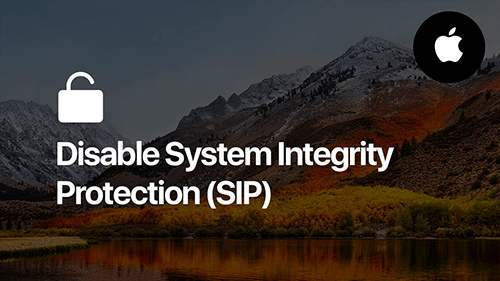How to Disable System Integrity Protection in macOS

System Integrity Protection security feature is effective and the vast majority of Mac users should leave rootless enabled, some advanced Mac users may find rootless to be overly protective. Thus, if you’re in the group of advanced Mac users who do not want SIP rootless enabled on their macOS installation, we’ll show you how to turn this security feature off.
To do so :
- Restart your Mac.
- Before OS X starts up, hold down Command-R and keep it held down until you see an Apple icon and a progress bar. Release. This boots you into Recovery.
- From the Utilities menu, select Terminal.
- At the prompt type exactly the following and then press Return:
csrutil disable- Terminal should display a message that SIP was disabled.
- From the menu, select Restart.
Checking the Status of System Integrity Protection in macOS:
If you want to know the status of rootless before rebooting or without rebooting the Mac into recovery mode, just issue the following command into the Terminal:
csrutil statusYou’ll either see one of two messages:
csrutil status System Integrity Protection status: enabled.
orcsrutil status System Integrity Protection status: disabled
To do so :
- Restart your Mac.
- Before OS X starts up, hold down Command-R and keep it held down until you see an Apple icon and a progress bar. Release. This boots you into Recovery.
- From the Utilities menu, select Terminal.
- At the prompt type exactly the following and then press Return:
csrutil enable- Terminal should display a message that SIP was disabled.
- From the menu, select Restart.
